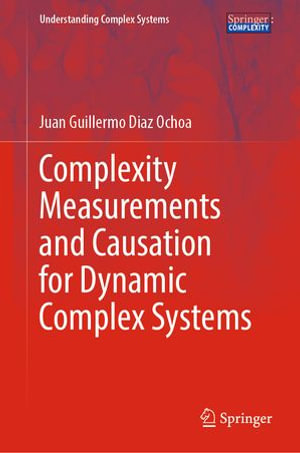
eTEXT
Complexity Measurements and Causation for Dynamic Complex Systems
eText | 13 March 2025
At a Glance
eText
$84.99
or
Instant online reading in your Booktopia eTextbook Library *
Read online on
Desktop
Tablet
Mobile
Not downloadable to your eReader or an app
Why choose an eTextbook?
Instant Access *
Purchase and read your book immediately
Read Aloud
Listen and follow along as Bookshelf reads to you
Study Tools
Built-in study tools like highlights and more
* eTextbooks are not downloadable to your eReader or an app and can be accessed via web browsers only. You must be connected to the internet and have no technical issues with your device or browser that could prevent the eTextbook from operating.
ISBN: 9783031847097
ISBN-10: 3031847091
Series: Understanding Complex Systems
Published: 13th March 2025
Format: ePUB
Language: English
Publisher: Springer Nature
You Can Find This eBook In
This product is categorised by
- Non-FictionReference, Information & Interdisciplinary SubjectsResearch & InformationInformation theoryCybernetics & Systems Theory
- Non-FictionEngineering & TechnologyTechnology in GeneralEngineering in General
- Non-FictionComputing & I.T.Databases
- Non-FictionComputing & I.T.Computer ScienceArtificial Intelligence
- Non-FictionEngineering & TechnologyTechnology in GeneralMaths for Engineers
- Non-FictionMathematicsApplied Mathematics























